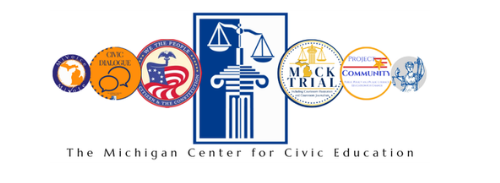Students take a look at two political thinkers who spent a lot of time trying to answer the question, “Why Government?” – Thomas Hobbes and John Locke. The lesson asks students to compare and contrast Hobbes and Locke and to think about how these philosophers influenced those that followed in their footsteps.
Civics Lessons
Why Government?
Citizen Me
Students learn that they are citizens at many levels of society: home, school, city, state, and nation! Students create a graphic organizer that diagrams rights and responsibilities at these different levels of citizenship. They also learn the sources of their rights and responsibilities at each level.
Wanted: A Just Right Government
Students learn how the U.S. Constitution came to exist by looking at the tensions and differences of opinion that existed among early American states and citizens. Students learn about the Articles of Confederation, why the first “constitution” didn’t work, and how compromise led to the Constitution.

